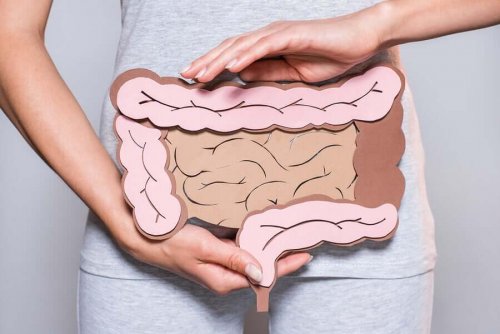How to Maintain Your Digestive Health

The adult intestines have the same amount of cells as they have bacteria. More than 70% of these bacteria inhabit the colon and act as a sort of organ by fulfilling functions that are vital to our digestive health. As you can see, it’s very important to be good to our intestinal bacteria to have a healthy digestive system.
Keep reading to find out more!
Maintaining your digestive health

Fermentable fiber
Most of the bacteria in the colon are anaerobic and participate in the digestive process via the fermentation process. Fermentable fiber includes pectins, mucilage, fructans, resistant starch, and polyphenols. These types of fermentable fiber are found in fruit, vegetables, and tubers.
Bacteria produce short-chain fatty acids (SCFA) from this fiber, especially butyrate, propionate, and acetate. These compounds are essential for several functions such as:
- The maintenance of colon health in the form of acidic pH regulation, energy substrate for colonocytes, production of mucin and antimicrobial peptides, etc.
- Optimum functioning of the immune system as in inflammation control and lymphocyte production, among others.
In addition to giving the SCFAs, the process of fermentation of the fiber in the large intestine also provides a certain amount of gas, CO2 mainly but also hydrogen and methane. These constitute a large part of the gases that a person expels daily. Other gases such as nitrogen, oxygen or hydrogen sulfide, among others, complete the composition.
Therefore, the fermentation processes in the colon are healthy and necessary for our intestinal health, despite their smelly nature.
Click on this article: Pectin – Benefits and Properties
The impact of bile on your digestive health
Bile is a yellowish substance produced by the liver that gets stored in the gallbladder and releases during the digestion processes. Overall, bile performs antimicrobial and digestive functions by emulsifying fats so digestive enzymes can digest them.
Most bile acid is reabsorbed at the end of the small intestine. However, a small part is released into the colon. Once there, it can accelerate the intestinal transit, perhaps even causing diarrhea when there’s poor absorption of the bile. Similarly, people with irritable bowel syndrome or who have a predisposition towards constipation may have a decreased bile flow.
Check it out: High Fiber, Low Sugar Banana Bread
Tips to maintain your digestive health
In addition to consuming fermentable fiber, which is present in fruits and vegetables, these tips can help maintain healthy bile flow in people with constipation, odorless gases or any form of a natural condition. However, it is very important to first see a doctor for his/her advice.
Then, it’s important to have a well-balanced acidic stomach pH. In fact, lower production of hydrochloric acid is associated with gallstones. Therefore you must:
- Eat when you’re hungry
- Drink freshly squeezed lemon juice before meals.
- Take Betaine HCl supplements if you need them
You can also add a few drops of standardized bitters such as artichoke, holy thistle, milk thistle, gentian root, bitter chamomile, and bitter orange to your lemon juice. These plants facilitate the expulsion of bile and can help in cases of discomfort after eating. However, you should consult your doctor before taking them.
Other tips to take care of your digestive health

Drink coffee before eating anything else in the morning. This is because its stimulating effect of the gallbladder can help your digestive system. However, you shouldn’t abuse it, as it can create dependency.
Eat a diet rich in healthy fats, like the fat present in certain foods, promotes the contraction of the gallbladder and can help maintain a proper bile flow. For example, if you have trouble going to the bathroom, try consuming more extra virgin olive oil.
Conclusion
If you’re one of the people whose diet is very rich in fermentable fiber and you’re often constipated, have odorless gases and your doctor has ruled out an organic-based condition, these tricks will help you stimulate bile flow. It may be just the key to better digestive health.
All cited sources were thoroughly reviewed by our team to ensure their quality, reliability, currency, and validity. The bibliography of this article was considered reliable and of academic or scientific accuracy.
- Wenzel H., Primary bile acid diarrea in a community gastroenterology practice. Z Gastroenterol, 2019. 57 (6): 734-739.
- Abenavoli L., Izzo AA., Milic N., Cicala C., et al., Milk thistle (silybum marianum): a concise overview on its chemistry, pharmacological, and nutraceutical uses in liver diseases. Phytother Res, 2018. 32 (11): 2202-2213.
This text is provided for informational purposes only and does not replace consultation with a professional. If in doubt, consult your specialist.









